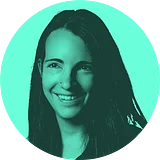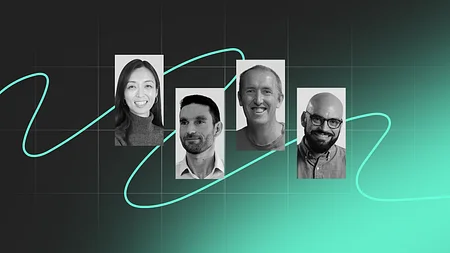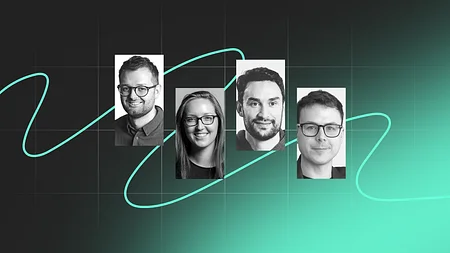Rishi Khosla, CEO - on OakNorth's deep roots and big ambitions
Jason Bates interviewed Rishi Khosla, CEO of OakNorth for Fintech Insider, the under the radar fintech unicorn in the SME lending space.
They discuss OakNorth’s origin story, how they reached profitability within 24 months, the social impact of the SME lending space and what the future holds for this little-big company with deep roots.
Listen to the interview in full on the podcast here or stream it below.
From acorns to OakNorth
Jason starts by asking Rishi to tell us the OakNorth origin story, how he and co-founder Joel Perlman came to found the bank, and the problem they’re solving as a company for the underserved SME market in the UK. He explained how they went to a bank to get funding for their new venture (at the time, the proposition they sold before going on to found OakNorth) and found the stumbling blocks for small business funding for themselves. When they accessed what he calls the “institutional” part of the banks, they had far more access to funding than from a high street bank because there was someone taking a detailed look at your proposition, investing their time into investing their finances. This experience gave them the idea that they were probably not alone, this was an experience shared by many SMEs that want a middle grade loan from a bank to help them start their business:"Let's look back at that problem set, and see if that's actually a problem set which exists, in lots of other markets, and to lots of other entrepreneurs.' And we figured it is.""You've had people massively focus on trying to figure out, 'How do you make the best lending decision for a small, £10,000, £50,000, £80,000 lend?' And you've had a lot of people figure out, 'How can I get the best service for an institutional client who wants to borrow hundreds of millions or billions?' But, the companies, in between are almost the missing middle….SME also gets flung between corporate and retail, and it somewhat gets orphaned."
The Missing Middle
In order to best serve this “missing middle” he explains the OakNorth business model centres around reducing the cost of underwriting by utilising machine learning and technology to target and solve the problem to give dedicated service to the SME space. Khosla describes their business model in a nutshell as “bringing in deposits at a cheaper cost than where you lend your money out” - this seems pretty straight forward."Bringing in deposits at a cheaper cost than where you lend your money out” - the OakNorth business modelIt clearly also works as OakNorth is now up and running, hitting unicorn status towards the end of last year, meaning they were valued at £1bn, boosting their lending power, and their customers now range from popular eateries like Brasserie Blanc and LEON to housing giants such as Galliard and Frogmore.
Positive social impact
Working with such customers has allowed OakNorth the boast that through their lending they have added “about 2,000 to 3,000 jobs in the UK, and about 2,500 new homes”, making a genuine impact on the UK economy, and promoting the notion that SMEs contribute most to GDP, and employment growth as they scale Jason also points out that on their website they advertise a certain amount of pride in their principles around lending, specifically focussing on ethical and environmentally friendly companies. Rishi says this is incredibly important to OakNorth’s values, “ultimately, we are capitalists, and we are entrepreneurs. But, fundamentally, how do you do that, in a way which is commensurate with good values? How do you be a good citizen?”“Ultimately, we are capitalists, and we are entrepreneurs. But, fundamentally, how do you do that, in a way which is commensurate with good values? How do you be a good citizen?”Khosla is proud of the fact that they broke-even at 11 months and paid back crude losses in 24 years, something Jason describes as “amazing” and “unheard of”.
Credit Committees - adding the human story back into lending
Jason also asked them about their decision to maintain a “credit committee”, an actual panel of people that have a hand in making the decision to lend money, not just using roboadvisors and data analysis. Jason questions whether this is a bit “old school” for the digital age? Khosla insists it is hugely important to meet the people behind the business, to better understand their vision. Not to do so he says would be to take “the ‘computer says no’ approach.” He also stresses that this human touch is what makes OakNorth stand out: “we've taken machine learning, and put that together with a very traditional approach, rather than saying, 'we're going to be purely digital.' If you do that, fundamentally, you're not going to end up any different from all the other lenders out there.”“We've taken machine learning, and put that together with a very traditional approach, rather than saying, 'we're going to be purely digital.' If you do that, fundamentally, you're not going to end up any different from all the other lenders out there.”
Up in the Clouds
Turning away from the human and back to the digital, the interview now turns technical as Jason quizzes Rishi on OakNorth’s slightly controversial move to Cloud based services years ahead of the competition, and how they got the regulators on board with this. “In 2015, we said to the FCA, that we wanted to have our stack up on the Cloud and they very politely said, 'You can either help us write our white paper on Cloud computing, or you can get licensed.' So, we said, 'Okay, let's get licensed first, then let's help you write your white paper.' So, that's what we did.” Incredibly, after this unprecedented move, it then allowed them to not only assist the FCA on their Cloud computing policy, but it also enabled them to move their entire stack to Cloud based systems in 6-8 weeks and to rebuild their entire banking system in 3 hours."To move our whole stack up in to the Cloud took us, 6-8 weeks, where we rebuilt our whole banking systems within three hours"
Growing deep roots
Taking a look into company culture at OakNorth, it is clear that the team believe in the company mission so much they’ve literally bought into it as Khosla reveals they opened up their investment rounds to staff, and employees invested whatever was affordable to them, from £5,000 up to £300,000. “About a quarter of our team, invested the equivalent of one year's net salary in to the business.” He tells Jason it’s this belief and literal investment differentiates them as a company, motivates the team and allows them to execute at pace.“About a quarter of our team, invested the equivalent of one year's net salary in to the business.”




